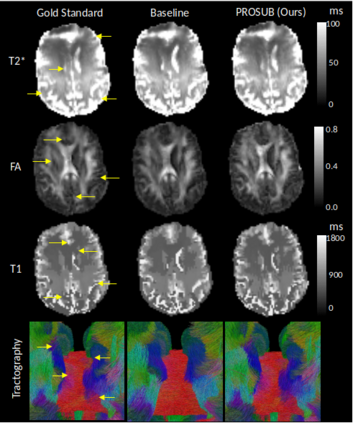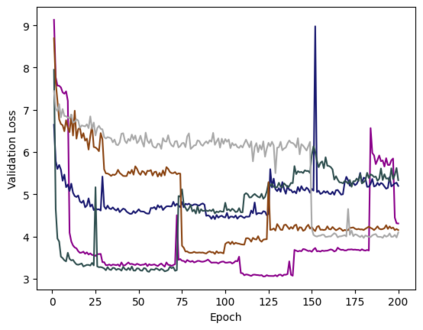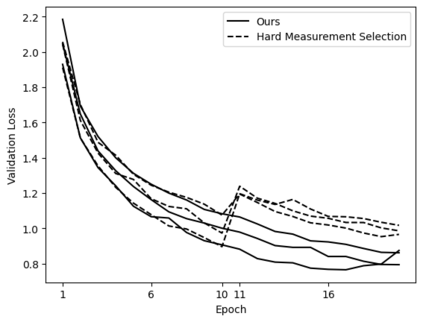We present PROSUB: PROgressive SUBsampling, a deep learning based, automated methodology that subsamples an oversampled data set (e.g. multi-channeled 3D images) with minimal loss of information. We build upon a recent dual-network approach that won the MICCAI MUlti-DIffusion (MUDI) quantitative MRI measurement sampling-reconstruction challenge, but suffers from deep learning training instability, by subsampling with a hard decision boundary. PROSUB uses the paradigm of recursive feature elimination (RFE) and progressively subsamples measurements during deep learning training, improving optimization stability. PROSUB also integrates a neural architecture search (NAS) paradigm, allowing the network architecture hyperparameters to respond to the subsampling process. We show PROSUB outperforms the winner of the MUDI MICCAI challenge, producing large improvements >18% MSE on the MUDI challenge sub-tasks and qualitative improvements on downstream processes useful for clinical applications. We also show the benefits of incorporating NAS and analyze the effect of PROSUB's components. As our method generalizes to other problems beyond MRI measurement selection-reconstruction, our code is https://github.com/sbb-gh/PROSUB
翻译:我们介绍PROSUB:分层抽样,这是一种深层次的基于学习的自动化方法,它以最少的信息损失为最低程度,对多抽样数据集(例如多频道的3D图像)进行分抽样;我们利用最近的一个双网络方法,它赢得了MICCAI Multi-DIfulpulation(MUDI)定量MRI测量抽样-再造(MUDI)的挑战,但受到深层次的学习培训不稳定,其方法是用硬性决定界限进行分抽样抽样抽样抽样抽样抽样抽样。PROSUB在深层学习培训期间,采用重复性特征消除(RFE)的范例,并逐步进行子抽样测量,提高优化稳定性。PROSUB还整合了神经结构搜索(NAS)范例,使网络结构超参数能够应对次抽样进程。我们展示了PROSUB超越MS/RUB选择系统的其他问题。








